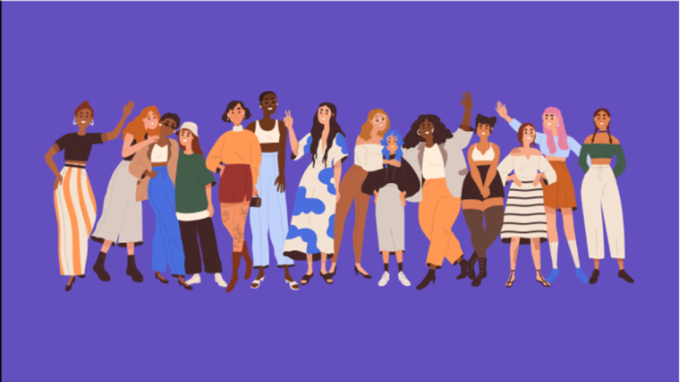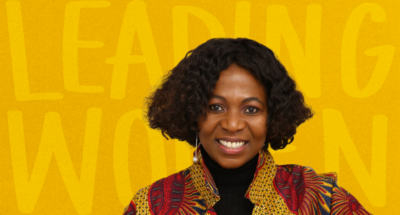
Putting boardroom gender balance plans to the test
Take our quiz to see if you're well-placed to implement new European rules on boardroom equality....
Audio available
March 8, 2023 in Data in your Equity, Inclusion & Diversity strategy: friend or foe?
The theme of this year’s International Women’s Day is #EmbraceEquity. But how can we do this in our organizations? A recent IMD panel got to the bottom of it....
Kicking off proceedings, IMD Affiliate Professor of Leadership and Communication Heather Cairns-Lee said that organizations needed to be clear on the terminology. “It’s important to differentiate between equality and equity because these terms are often used almost interchangeably – but they have quite specific meanings,” she explained.
Equality is the idea that we treat everybody the same and give everybody the same access to resources or opportunities. It’s based on the assumption that we start from the same place. Equity, on the other hand, means acknowledging that this is not really the case. “And so, treating people equitably means giving people what they need in order to progress,” Cairns-Lee said.
She underlined the timing of the event, held on the eve of International Women’s Day (8 March). IWD had generated “tremendous” visibility of issues such as gender equality and equity, added Ashley Watson, Global Head of Diversity, Equity and Inclusion at Danfoss, the Danish industrial group. However, she said, progress on actually tackling gender equity had been minimal.
Additionally, Watson urged companies to be honest about that rather than trying to “look good on social media”. She added, “We fail as organizations to not be vulnerable and vocal about what’s not working. To see progress, a company should definitely take a stand on their commitment, being vulnerable when they have missed the mark, and admitting when they’re not where they would like to be.”
This sentiment was shared by Diana Markaki-Bartholdi, Founder and Chief Executive of The Boardroom in Zurich, a private club for women executives who aspire to be board members. Markaki-Bartholdi said the impetus from IWD needed to be sustained and embedded in organizations: “It cannot be a day. It needs to be continuously embedded in our mentality and the way that we think.”
We will all make mistakes – but we need to be aware of our own biases, our own stereotypes, and also check our privileges.- Diana Markaki-Bartholdi
More broadly, she wanted to increase the number of women on corporate boards who she said are role models other women can aspire to emulate. “I founded The Boardroom to fight ‘onlyness’,” said Markaki-Bartholdi, in reference to the slim minority of female non-executive directors.
Moreover, Markaki-Bartholdi underlined the “tremendous importance” of retaining the women being recruited into various positions, who the panel said are leaking out of the leadership pipeline. “We’re losing a lot of senior women. So, what are we doing to retain that senior talent that has made it to the top, against all odds, overcoming barriers and stereotypes and biases?” she asked.
Echoing her, Datuk Nora Abdul Manaf, Group Chief Human Capital Officer at Malaysian bank Maybank, said leaders of organizations needed to take personal responsibility to manage that pipeline of women candidates including through mentorship. “We have our own circle of influence and all of us have to take ownership for curating that infrastructure that will provide equitability,” she said.
In a similar vein, Cordula Jourdan, Head of Global Field Quality and Excellence at Switzerland’s Schindler industrial group, underscored how even senior female leaders needed to receive training to help them not just to support their colleagues, but to self-reflect. Following such training, she said, “I learned that I got a bit blind to the challenges we are still facing to bring women in to technical and operational leadership positions.”
This was because of misconceptions such as, “She doesn’t have the experience,” “She doesn’t have the deep technical knowledge,” or “She will get pregnant, stay at home, and the investment will not pay off,” emphasized Jourdan, who added: “I can only say if my previous managers had followed these stereotypes, I would not be here today.”

In designing learning programs that would help to quash these views and support women’s development more generally, the speakers underlined the importance of making training specific to the needs of the individual. Of Schindler’s development programs, Jourdan said, “The approach is not one size fits all, and the training is very much tailored to the women’s individual needs.”
Elisa Dot Bach, Founder and CEO of DONA Coffee, which sources specialty coffee from women-owned farms, agreed that it was key to focus on the personal needs of each employee, which she said was “a revolution, because it requires a total shift in leadership style and in the skills of the HR people in the company”.
In driving that shift, she suggested that demonstrating the business case for diversity was likely to prove helpful. When Dot Bach was previously an executive at the consumer goods giant Nestlé, she said, “A business case demonstrated that equitable companies had better financial performance. This was a no-brainer. It was a way to move away from emotional considerations and to all work towards the same goal.”
Bach added that diversity supports talent attraction and retention, too: “We are missing out on 50% of the talent pool if we don’t consider women as part of our workforce.” Additionally, she said, “diverse talent begets diverse talent”.
Finally, Watson underlined the importance of taking an intersectional view or recognizing that people can have multiple identities that overlap. “If we’re not aware or have those blind spots of not having that awareness of how we identify, unconscious bias can creep in because you’re just not aware of what you may say,” she said.
Concluding, Markaki-Bartholdi said that leaders needed to acknowledge this is an ongoing learning process. “We will all make mistakes – but we need to be aware of our own biases, our own stereotypes, and also check our privileges.”

March 27, 2025 • by Jennifer Jordan, Alexander Fleischmann in Women leaders
Take our quiz to see if you're well-placed to implement new European rules on boardroom equality....
 Audio available
Audio available
March 18, 2025 • by Diana Markaki-Bartholdi in Women leaders
New EU legislation requires stronger female representation on corporate boards. Here are ways to navigate the transition....
 Audio available
Audio available
October 23, 2023 • by Silse Martell in Women leaders
Silse Martell, founder of the Brazilian-based Smart Group of agencies, shares how big corporations should emulate startups by creating reputation strategies with sales growth in mind....

August 14, 2023 • by Sibongile Manganyi Rath in Women leaders
Social entrepreneur Sibongile Manganyi co-founded Alma Clinics in 2018 to increase primary care access to low-income communities in South African townships. Here are her five tips on starting a digital healthcare business....
Explore first person business intelligence from top minds curated for a global executive audience